Pulling the strings: the Obraztsov Theater played puppets with Dostoevsky
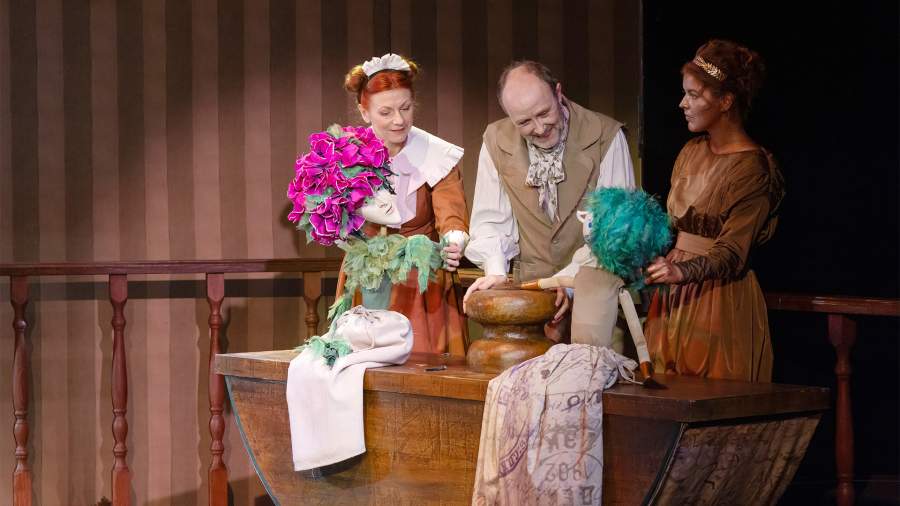
Film playwright Alexander Adabashian made his debut as a theater director with a performance based on Fyodor Dostoevsky's novel "Poor People". In the production, a small man is overwhelmed by giant objects and communicates with animated puppets. The place of action is a desk. The director has found a place for each of the classic's characters on it. The play lasts only an hour, but is filled with inventive solutions. "Izvestia" visited the premiere and evaluated the debut in the theater scriptwriter who worked with Nikita Mikhalkov.
Rethinking the classics
Alexander Adabashian presented his view of Dostoevsky's "Poor People", reinterpreting a serious classic for young audiences. The age limit of the performance is 12+, but it will be interesting for adults.
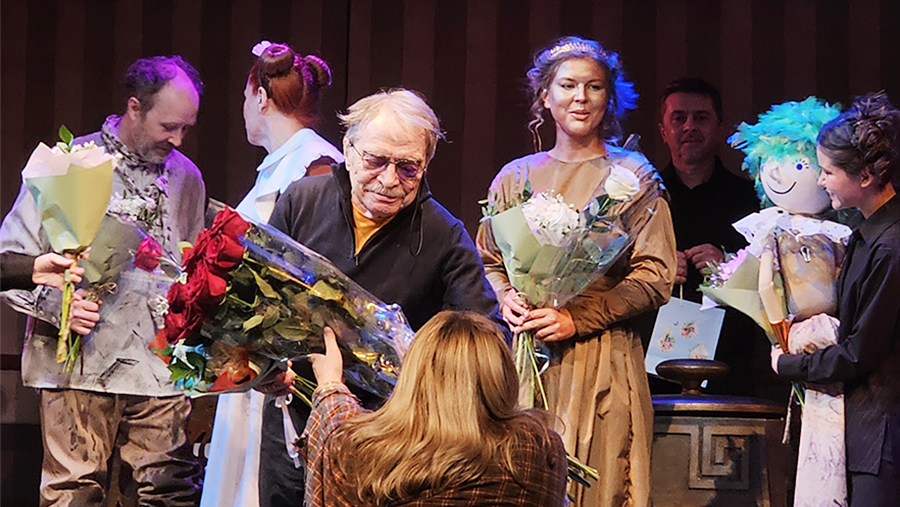
The name of Honored Art Worker of the Russian Federation Alexander Adabashyan can often be found next to the name of People's Artist of Russia, director Nikita Mikhalkov. Together they worked on such films as "A stranger among strangers, a stranger among his own", "Slave of Love", "Unfinished Piece for a Mechanical Piano", "Five Evenings", "A Few Days in the Life of Oblomov". Well, of course, everyone remembers his important butler Barrymore from "The Hound of the Baskervilles". Nikita Sergeevich played Sir Henry Baskerville there. Puppet theater has never been in the field of Alexander Artemovich's activity. To entice him to experiment, there had to be weighty arguments.
- We did not have to persuade the director, he proposed the idea himself," Elena Bulukova, director of the Obraztsov Puppet Theater, shared with Izvestia. - A year ago, Alexander Artemovich came to one of the performances and after confessed that he has long had the idea to dramatize Dostoevsky in the puppet theater. He told about his idea of staging based on the novel "Poor People". He was approved. And a few months later, the director together with our artists began work on the play.
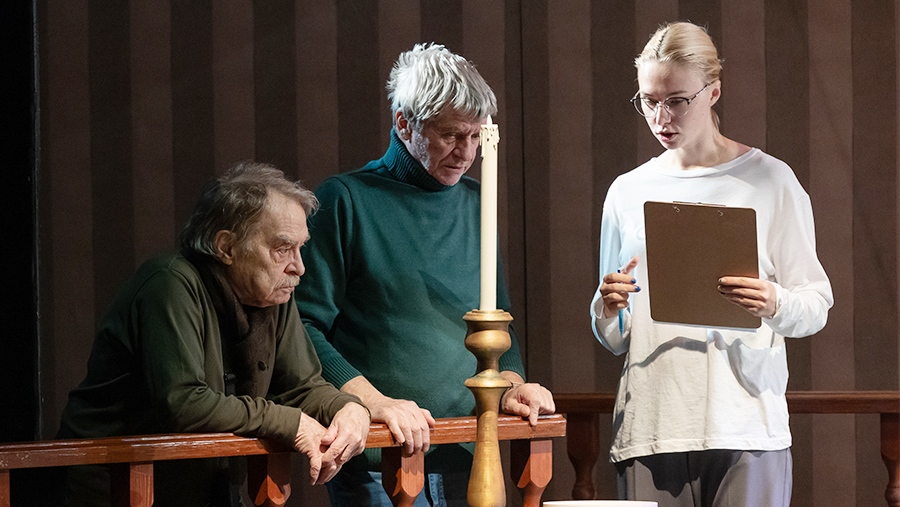
Alexander Adabashyan also acted as a production designer. He himself developed the scenography, selected the music. The actors sing the romance "That you greedily look at the road" on the poems of Nekrasov, sound works by Mikhail Glinka. Adabashian was pedantic and attentive to detail. The performance involves flat puppets and tablet puppets. But the director brought to the foreground from behind the screen the actors of the Obraztsov Theater troupe. In the production are engaged: Honored Artist of the Russian Federation Vladimir Berkun, Aliya Gattarova, Anna Suvorova, Alyona Kovalchuk, Irina Osintsova, Ekaterina Maletina, Alexander Zakhariev.
Backstage, Adabashyan was dubbed the last director of the Renaissance because of his ability to create an atmosphere appropriate to the material.
- The play is rather based on "Poor People", because the staging, as well as the screen version, is a translation into another language, - says Alexander Artemovich. - Not just a retelling of the story. Not a literal substrochnik. Just as, say, the translation of poetry is possible only if the translator himself is not a stranger to this genre.
A novel in letters
The novel "Poor People" was the first serious success of the novice writer. Fyodor Dostoevsky wrote it in 1845. The text of the work is a correspondence between a poor St. Petersburg lonely official Makar Devushkin and an educated girl, a round orphan Varenka Dobroselova. Besides them, Fyodor Mikhailovich has other "poor people". But the director reduced them to the size of the office and transferred the action to the desk of the mean and calculating barin Bykov.
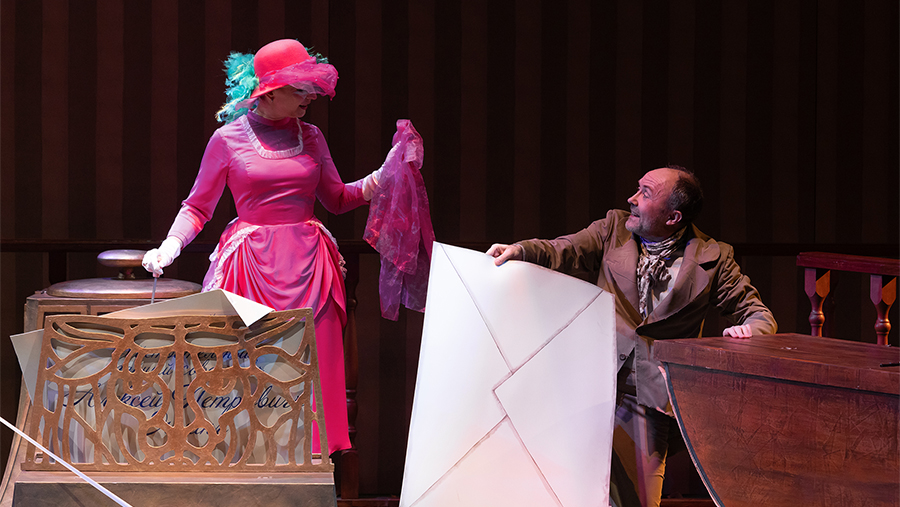
Makar Devushkin is engaged in the correspondence of the gentleman. He is a man of servitude, without the right to vote, without the ability to move anything on this desk. Even suspended by someone across the table interfering paper clip is afraid to remove. All day long he collects envelopes with letters, stamps them with a stamp and places them under the giant paperweight. The cards of important people, thrown barbarically on the table, must be stacked in a desk card holder. And when Mr. Bykov wants to dip his pen into the inkwell, he must immediately open the device. Makar Devushkin does not belong to himself, constantly on guard. Life - from letter to letter. And then one day a pink fairy enters his workplace through an open window. She does not understand how it is possible to flail about like this, gives Makar a magic green feather and disappears. From this moment the fairy tale begins.
Alexander Adabashyan tells a story in which Devushkin created a doll out of improvised means that he found on his desk. In the course of going: a teapot, torn off jacket sleeves, tassels. Having revived her, the official gave her a name - Varenka. The bronze statue of Gemera, the goddess of light in Greek mythology, also spoke. The girl remembered that she had once posed for Michelangelo. Next to Makar appeared those with whom one could talk, about whom one could take care. The official, like Papa Carlo, decided to take off his boots to buy various trinkets for the mischievous Varenka. Now she is a light in the window for him.
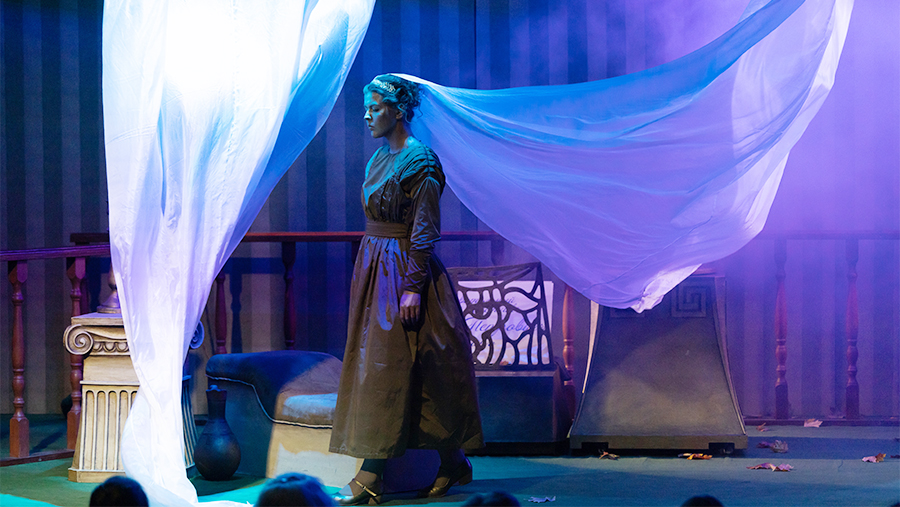
At the same time, from the real window of his semi-basement room, he sees only the soles of the bar's boots, running dogs and a passing car. And gusts of wind bring him garbage from the sidewalk.
Geranka whispered
From the same paving stone, a broken potted Geranka falls onto Makar's table. She was thrown out the window, even though she was blooming and smelling. The flower dreams of a passing millionaire who will take her to his estate. And with these fantasies only instills in Varenka's head the idea of a bright future. This becomes a turning point that leads to betrayal.
- Imagine, he - a petty official, he and no one notices him - says Alexander Adabashyan. - His life - to blot papers in the department and look at St. Petersburg through a half-basement window. And then she appears, and with her - the meaning of life. Then she hears that there is some other life upstairs, a beautiful one. Then Geryanka appears, who has lived "upstairs" for some time and tells her how wonderful everything is up there. How wonderful the upper world is. In the end Varenka leaves the unhappy man, just as in Fyodor Mikhailovich's novel. And in Dostoevsky she rather cynically leaves him, in the play we make the story softer.
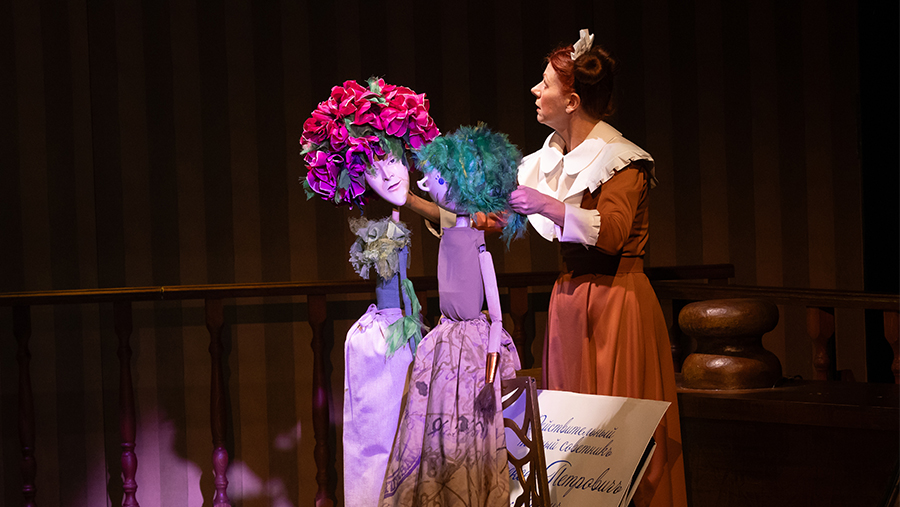
If in the repertoire of the Puppet Theater you can see performances of serious drama, then we can say that the audience has changed its attitude to this art. Especially on Obraztsov's stage, where traditions and skill are strong. This means that not only children, but also their parents can be interested in the playbill.
Переведено сервисом «Яндекс Переводчик»
